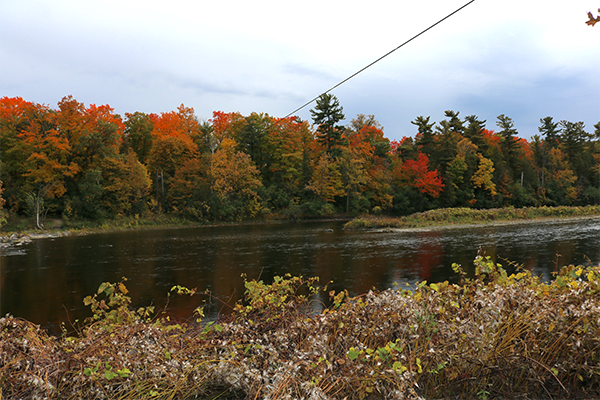If you’re like me, the idea of research probably doesn’t appeal very much. I used to dread the research-heavy parts of assignments, but something I learned this summer was that I hated it because I didn’t properly understand it, and I approached it all wrong. Looking back, a lot of us aren’t really taught how to research things well, which can cause lack of confidence in our research skills which is then reflected in our performance. I used to think I was bad at research, so I put it off as long as possible, did the bare minimum of research, or traded tasks in group work so I could do the writing-intensive aspects of an assignment over the research-intensive parts.
What I didn’t know at the time was how many supports are available for us to learn and conduct research at Carleton. During the winter semester, I found out about the Faculty of Arts and Social Sciences (FASS) Undergraduate Summer Research Internship for 2020, and I immediately knew I wanted to apply to do research on a disability-related issue that was close to my heart. I had started becoming more comfortable with research – at least, I knew how to do it – since making it to my fourth year of university necessitated that, so I thought I could do it with the supervision and help of a professor (as is one of the internship requirements). From the moment I made the decision to apply, what I will call my ‘research journey’ began.
Over the course of the last eight months I went from a student who disliked doing research (I’d progressed from dreading it to simply disliking it between third and fourth year) to someone who wants to spend the rest of my life conducting research. I went from saying I never wanted to do my Masters to being super excited over applying to graduate school. I now even hope to earn a PhD and work at universities so I can continue doing research throughout my career. I’ve been looking into every research opportunity available to undergraduate students (before reminding myself I actually have to leave room for my required coursework). You might say the last few months have been transformative.
Carleton’s MacOdrum Library was my most valued resource throughout my internship, and it is a very important resource for every student to understand. There were a lot of library resources I was unaware of up until the start of my internship, and I want to share my most valued resources with you so that hopefully you can start using them sooner than I did! The second tab/pillar on their website’s homepage is dedicated to research support services.
Here are some of my favourites:
- Guides galore! Course guides, subject guides, and How-To guides can point you in the right direction. For an example of subject guides, check out this detailed guide on COVID-19 or this quick guide to Gender Studies. You can also check out some of the library’s popular How-To guides available to you. Specifically, there is also a Library Guide for New Students you might want to look into! (Hint: these also include guides on proper citation, which is super important!)
- Subject Specialists can provide one-on-one help with finding research in particular areas of interest – this was SUPER helpful for me when I was doing my research internship. I worked one-on-one with the subject specialist for disability studies and she helped me navigate the library’s Omni search engine, gave me great research tips that changed the way I do research now, and was able to go through the research process with my by screensharing – I got all this help right from the comfort of my home! I learned a lot about research from her, and if you take one thing away from this post, take my number one research tip for all students: reach out to the research specialists at the library! You will learn so much from them!
- You may have noticed a little tab in the image above that says “Ask a Librarian” – the library has great Help options, which include my favourite: an online chat option is available during the library’s open hours, which is super helpful, especially when it comes to sharing links to resources. There is also a text option as well, plus the more typical phone and email options. I personally found the online chat to be the easiest and most approachable option.
- The last library resource I really want to mention is the search engine Omni. If you haven’t used it yet, Omni will become your new best friend when it comes to researching. This search engine, which you can’t miss on the library homepage, is where you can search through ebook chapters, journal articles, books, and any other material the library has or can get access to. You can use all sorts of filters to narrow down your results, and when you find something you want to use Omni will also provide a citation. You can learn all about Omni on the Omni Help page, including an 8 minute introductory video.
A lot of these resources go hand in hand with each other (e.g. there is a How-To Guide for Omni and the Subject Specialist really helped me learn the nuances of the search engine) and I fully recommend utilizing all of these frequently throughout your time at Carleton. While things are still somewhat slow at the start of the semester, I recommend getting to know these resources now. Explore the guides, bookmark subject guides that may come in handy, familiarize yourself with the librarians and specialists you may want to reach out to in the future. You’ll almost definitely end up grateful that you did.
Happy studying Ravens! I’m wishing you all a great Fall 2020 term.
Recent Quote the Raven Posts
Read the latest from our student Bloggers









 Ask Me
Ask Me